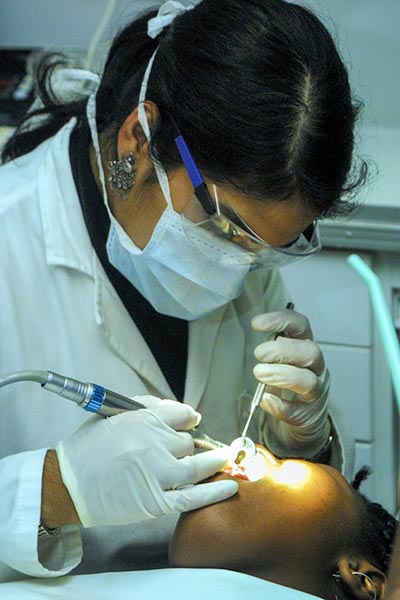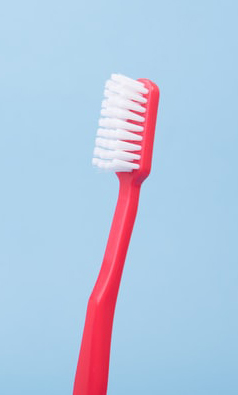What Does an Abscessed Tooth Feel Like?
 To understand the answer to, “What does an abscessed tooth feel like”, let’s understand what one is first. An abscessed tooth is filled with pus due to some sort of bacteria or foreign object infecting your gums. There are different types of abscessed teeth, and each one of them has distinctive symptoms. When you identify that you have an abscessed tooth, there are a few treatment options available for you to choose from. Some of the most common remedies to an abscessed tooth is either a root canal or tooth extraction.
To understand the answer to, “What does an abscessed tooth feel like”, let’s understand what one is first. An abscessed tooth is filled with pus due to some sort of bacteria or foreign object infecting your gums. There are different types of abscessed teeth, and each one of them has distinctive symptoms. When you identify that you have an abscessed tooth, there are a few treatment options available for you to choose from. Some of the most common remedies to an abscessed tooth is either a root canal or tooth extraction.
What causes an abscessed tooth?
Abscessed teeth are teeth filled with pus due to a bacterial infection, an abscessed tooth can occur for a variety of reasons, and they can also appear in different regions of your mouth. There is more than one type of abscessed tooth you can develop; periapical abscess teeth are a condition that occurs at the tip of the root in your mouth. Periodontal abscess teeth develop in your gums as the side of the tooth root.
There are several different symptoms you can look for to determine whether you have an abscessed tooth or not. When you identify that you may have an abscessed tooth, it’s vital that you seek professional medical assistance as soon as possible.
One of the most common causes of an abscessed tooth is an untreated dental cavity. To help you better understand how to treat an abscessed tooth, we’re going to provide you with a detailed view of all of the important information you need to know.
What does an abscessed tooth feel like?
When you have an abscess tooth or teeth, you may begin to notice that your teeth are more sensitive to hot and cold temperatures in addition to excess pressure being felt when you bite or chew. There are several symptoms you can look for to determine whether you have an abscessed tooth or not.
Here are some of the most common symptoms of an abscessed tooth:
⦁ Tooth sensitivity
⦁ Bad breath
⦁ Swollen gums
⦁ Discolored teeth
⦁ Pain radiating to your jaw, neck, and ear
⦁ Redness in the face
There are several catalysts for the development of an abscessed tooth; they can include pre-existing gum disease, bacteria, and foreign objects such as popcorn shells becoming stuck in your gum lining. Depending on what caused your abscessed tooth, you will develop a specific type of abscessed tooth.
The specific type of abscessed tooth that you develop will determine the optimal treatment option.
How to treat your abscessed tooth
When it comes to treating your abscessed tooth, you need to speak with your orthodontic specialist to find out which method will be best for you. Virtually all treatment options out there for abscessed teeth focus primarily on alleviating pain while also cleaning up any infection that may exist.
Some of the most common treatment options for an abscessed tooth are:
⦁ Root Canal
⦁ Tooth Extraction
⦁ Removal of any foreign objects
⦁ Draining your abscessed tooth
People Also Ask
Q: How can I treat an abscessed tooth at home?
A: there are several treatments available for abscessed teeth, some of the most popular treatment options available include: thyme oil, clove oil, baking soda, oregano oil, and hydrogen peroxide.
Q: What does a tooth abscess look like?
A: if you have an abscess on your teeth, you will notice swelling around your gums with pus coming out of it. You may also notice a pimple near the area of your affected tooth; bad breath is also another sign that you have a tooth abscess.
Q: Can a tooth abscess go away on its own?
A: abscessed teeth are a condition that does not go away on their own. Since a bacterial infection causes abscessed teeth, you’ll likely need to get prescribed an antibiotic or some other medication type to remedy the situation effectively.
Do you feel like you have an abscessed tooth?
We’ve gone over all of the critical facts and information you need to know about how to treat your abscessed tooth or teeth. Use all of the tips included in this write-up so that you will be able to handle your abscessed tooth properly. Ask yourself, “How severe is my pain?” and “What is the cause of the abscess I’m experiencing?”
Frequently Asked Questions
How often should I brush my teeth?
Does a root canal hurt?
What would be considered a dental emergency?
Why are my teeth so bad even though I brush?
How long do dental implants take to heal?
Can gum disease cause cancer?
How much do braces cost?
How Long Can a Cavity Wait to Get Filled?
 Most people don’t realize that dental problems have the potential to become much more significant over time when left untreated. This is why it’s crucial to be able to identify accurately what is a dental emergency and what isn’t. Dental emergencies are classified as any situation in which you feel your life is in immediate danger. Common symptoms of a dental emergency include bleeding, broken jaw, lost fillings, and more.
Most people don’t realize that dental problems have the potential to become much more significant over time when left untreated. This is why it’s crucial to be able to identify accurately what is a dental emergency and what isn’t. Dental emergencies are classified as any situation in which you feel your life is in immediate danger. Common symptoms of a dental emergency include bleeding, broken jaw, lost fillings, and more. To understand the answer to, “Why are my teeth so bad even though I brush?”, let’s understand what causes decay. Brushing your teeth alone does not prevent decay, cavities, or gum disease, as you may not be doing it right. There are several reasons as to why your teeth are bad even after brushing them. Some of the most common causes include: not using the right toothpaste, not flossing, brushing too hard, and not brushing your teeth for a long enough time.
To understand the answer to, “Why are my teeth so bad even though I brush?”, let’s understand what causes decay. Brushing your teeth alone does not prevent decay, cavities, or gum disease, as you may not be doing it right. There are several reasons as to why your teeth are bad even after brushing them. Some of the most common causes include: not using the right toothpaste, not flossing, brushing too hard, and not brushing your teeth for a long enough time.